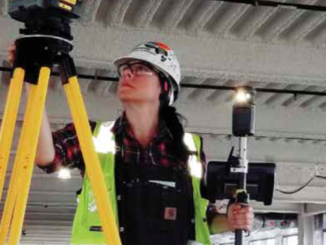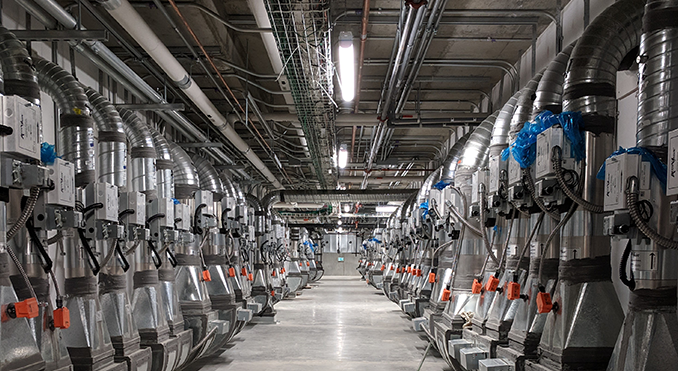
by Natalie Bruckner
Honesty and integrity are by far the most important assets of any entrepreneur, as the three partners of Western Mechanical Services Ltd. (Kyle Nelson, Dennis St. Hilaire, and James Wahlen) well know and stand by. It’s just a couple of the reasons the company has been in business for more than 60 years.
St. Hilaire, director/commissioning department manager, explains: “WMS started as a building maintenance company servicing office towers in downtown Vancouver. At one point more than 50 buildings had maintenance contracts with us. When consultants were having issues in finding qualified firms to undertake balancing, they approached WMS to see if it was something we would be interested in. As the previous owners stated, ‘We blithely agreed,’ not knowing what was in store for us! After a lot of hard work and research, the TAB business grew into the main focus of the company, eventually resulting in the reorganization.”
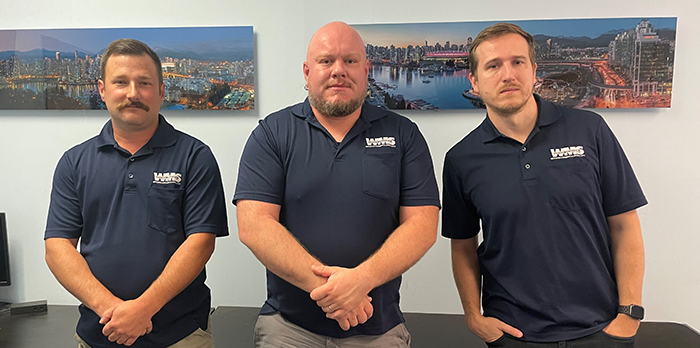
Left to right: Kyle Nelson, Dennis St Hilaire, James Wahlen, partners at Western Mechanical Services | Photo: Western Mechanical Service
Soon after, the company started working with consultants to develop what would soon become known as commissioning—this third-party independent review was somewhat of a new idea at the time. St. Hilaire says this resulted in a separate department being set up that would undertake commissioning on a variety of projects.
Fast forward to today, and WMS provides a range of services including testing and balancing, building system surveys, new building commissioning, retro commissioning of existing buildings, and commissioning of mechanical system upgrades. It also provides operating and maintenance manuals for mechanical systems, which is seeing a resurgence lately as building systems become more complex and building operators need to understand how to maintain these systems.
Things have definitely changed for the company—but there’s one thing that hasn’t, and that’s its commitment to honesty. “Being honest with our clients and the consultants is so important to us, even when systems may not be performing as intended,” St. Hilaire says. “There are firms out there that will submit a ‘clean’ report for balancing or commissioning, even when they know systems are not operating as intended. But we have always been a big purveyor of the requirement to have independent testing, balancing, and commissioning services to provide an impartial evaluation of these systems. In the end, the owner has paid for a product and us not doing our job with integrity and professionalism cheapens every trade’s efforts involved to install the systems up to that point.”
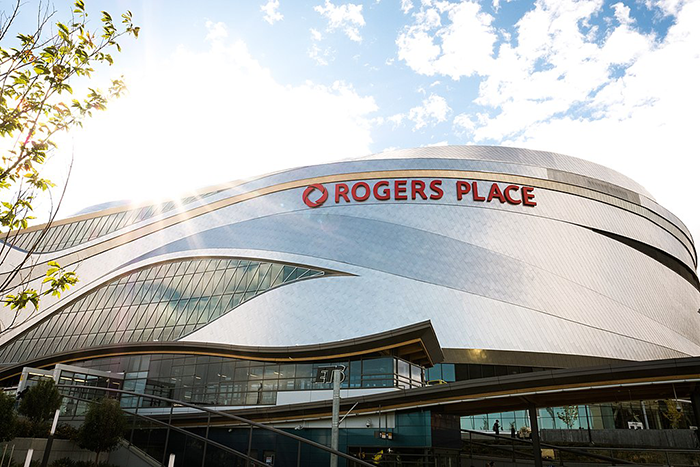
Rogers Place in Edmonton | Photo: Western Mechanical Services
Maintaining this high-level reputation is important to the entire WMS team, and Nelson is proud of the philosophy and expertise that has been nurtured within. Mentorship is strong at WMS, and new apprentices are often paired with senior technicians who oversee their work on site. Nelson, who joined WMS back in 2005, also trained this way. “We share centuries of combined industry practices and knowledge that many companies simply do not have,” he says. “This knowledge includes best practices and troubleshooting that cannot be taught by any book or classroom.”
WMS’s expertise means they are capable of handling projects of all sizes and complexities. One recent example was the University of Lethbridge Destination Project where WMS undertook testing and balancing services. This $280-million sciences building is targeting LEED gold. The building includes spaces for biological sciences, chemistry and biochemistry, neuroscience, physics, and astronomy. It has multiple designated spaces including wet and dry laboratories, greenhouse, herbarium, and a vivarium.
“The project has many technologically advanced systems to optimize energy efficiency in the HVAC systems and had an aggressive timeframe that required a detailed plan of attack from us,” says St. Hilaire. “We were able to successfully complete the work on time with less manpower than anticipated, through diligent project management and a great construction team.”
Other stand-out projects that WMS has been involved with include many marquee residential towers, such as 1335 Howe Street, The Butterfly, Cambie Gardens, The Paramount, and Vancouver House.
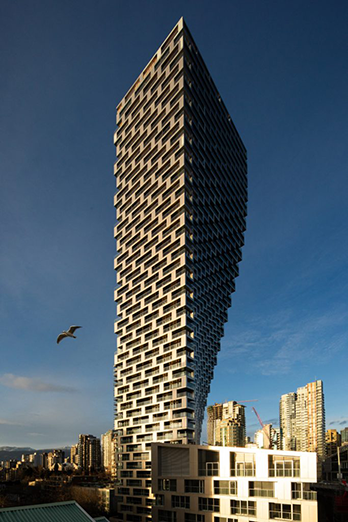
Vancouver House | Photo: Western Mechanical Services
Like the journey of any business, it hasn’t all been plain sailing, but being able to pivot and roll with the punches has kept them riding the wave.
“Over the past two years, for example, we have had to revaluate how we manage everything in relation to our people: from working hours to wages to how we communicate,” says St. Hilaire. “We have been supporting work from home and flexible hours where possible. We also rolled out an online HR system that allows everyone to track their time off digitally.”
Challenges, of course, still lay ahead. That’s the nature of the industry. The biggest, as St. Hilaire sees it, will be the balance of wages for tradespeople versus affordable living. “Wages for trades in BC were suppressed compared to other markets, which caused a drain of skilled workers.,” he says. “Now, with a construction boom pushed by higher residential demand and energy efficiency-based retrofits, combined with a high cost of living, many employers are playing catch up with wages that allow skilled workers to maintain the quality of lifestyle they deserve.”
While he acknowledges it’s not unique to Vancouver or BC, he does say that construction companies have a hard time reacting quickly to sudden market changes due to pricing that was established sometimes three years prior when projects are tendered.
While WMS continues to evolve, it remains true to its philosophy to always learn and grow with the technology in the industry, while providing honest accurate reports and information to the clients and owners.
“Building technology, from controls systems to HVAC equipment, is always improving and changing, therefore the methodology, instrumentation, and execution needs to adapt as well to be successful,” he says. “It’s not easy to stay on top of all relevant changes, but it does make for a better product at the end of the day and we believe this is what makes us better than the rest.” ■


